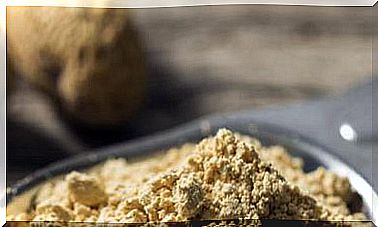Beware Of Fast Diets
There are no safe and effective diets to lose weight quickly. If a diet allows you to lose weight in express time, it is because, in addition to weight, it is taking your health. Discover the dangers of “miracle” diets.

Those who start a low-calorie diet with the goal of losing weight should know that it will probably not solve their problem, but may even aggravate it: the vast majority of people who undertake drastic regimens regain the lost kilos and some more.
Experts point out that diets teach the body to adapt to the shortage of nutrients – it reduces the consumption of its own reserves – and also to assimilate them to the maximum when you eat again. Therefore, the body becomes increasingly resistant to weight loss strategies.
In addition, restrictive diets multiply the chances of suffering from nutritional deficiencies and major disorders, from depression to liver, kidney or heart disorders.
Diets that promise rapid weight loss are especially dangerous.
Almost all of them achieve a reduction of 5 to 10% in weight during the first months, which corresponds to a loss of water –and with it, of electrolytes– and muscle mass, but none of them manage to go further.
Once the discipline is finished, the kilos and the tip are recovered, according to Traci Mann, a psychologist at the University of California in Los Angeles (United States). “Would it have been better for many people not to follow any weight loss diet?” Asks Mann, and his answer is: “Yes, because at the end of the process the weight is the same or higher and the body has suffered the wear and tear that means lose weight and gain it again. “
This vicious cycle is associated with cardiovascular disease, stroke, diabetes, and immune disorders.
What characterizes a balanced diet?
Faced with all the proposals for weight loss regimes –of often dubious efficacy– is the truly healthy diet.
It must be able to be maintained indefinitely and it must favor general well-being, that is why a balanced diet has similar characteristics for all people.
Those who want to lose weight should reduce the size of the servings – without altering the proportions – and, above all, increase the exercise.
If you want to lose kilos, you have to consider it in the long term, as a continuous reduction. 250 grams per week (1 kg per month) or even less is enough . The important thing is to reinforce healthy eating habits.
No food is prohibited in the healthy diet. The most “dangerous” (pastries, pastries, fried) can be eaten occasionally.
Most of the energy (60 to 70%) is obtained from foods rich in slow absorption carbohydrates, such as whole grains (rice, wheat, oats, barley, millet …) and legumes.
Another 20% of energy comes from protein-rich foods that do not also provide saturated fat such as soy and other legumes. The remaining energy is obtained from fats. Virgin olive oil, nuts, and seeds are the main sources of healthy fats.
You should take at least five servings of fruits, vegetables and greens daily , which provide vitamins, minerals, beneficial plant chemicals, and fiber. In addition, combining starches with vegetables reduces calories and promotes a feeling of satiety.
Water is the ideal drink. Soft drinks with sugars or artificial sweeteners are under suspicion of promoting obesity.
Some cooking techniques add too many calories or subtract nutrients. The most convenient methods are steaming, low-temperature baking, cooking in water, or ironing.
Is there a miracle cure for weight loss?
The health risks multiply if the intake of supposed slimming products is added to the diet.
Many have diuretic effects, that is, they cause the elimination of fluids, but not fat. The problem is that if they are taken without control and continuously, side effects such as dehydration, fatigue, insomnia and even rapid heartbeat may appear.
The laxatives are part of another category of products falsely indicated for weight loss. They facilitate evacuation, since they stimulate bowel movements or increase the volume and fluidity of the stool.
If they are taken in excess, they end up achieving the opposite effect. Therefore, its use is only indicated in case of constipation and always under professional control, since some can irritate the mucosa of the intestinal tract.
Substances that appear to burn fat are also sold . Most are unfounded, even if the advertising offers arguments in scientific language.
Some may produce some effect on fats – they enhance their metabolism or their expulsion without digesting them – but it is not significant and they are not useful in the medium term.
The satiating fiber – based agents reduce appetite because they multiply its volume in the stomach, but they are not safe. They can cause diarrhea, flatulence, abdominal pain, poor absorption of nutrients, and drug interactions.
Why fall into the trap of miracle diets and remedies? Probably because the aesthetic ideal of thinness is offered as a solution to many personal and social frustrations. Not only are slim people better accepted, but thanks to the continuous bombardment of advertising they seem smarter, more attractive and happier.
In short, there are certain practices that you should never do if you want to lose weight in a healthy way:
- Try to lose weight with the help of pills or remedies of any kind, especially if you are not aware of all the side effects.
- Follow diets that are based on eliminating an entire food group. It is proven that diets that suppress fat or carbohydrates only achieve initial weight loss due to boredom, but they are not diets that can be maintained in the medium term. Nor are diets based on one or more foods, no matter how healthy they are (grape, artichoke …) are advisable .
- Any diet that promises rapid weight loss is not recommended. It favors an equally fast recovery and puts the organs to an overexertion.









